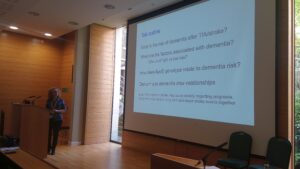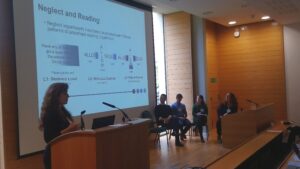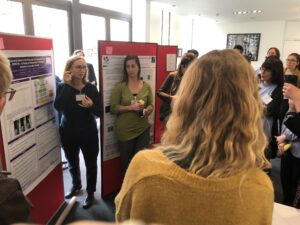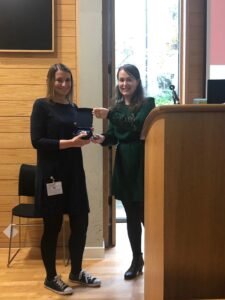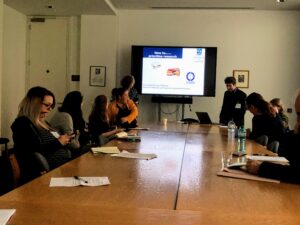OPSYRIS 2019 took place in Saint Anne’s College Oxford on Friday the 4th of October. After the meeting, many of the speakers have thankfully shared their work and can be found on the Shared Google Drive for the Oxford 2019 OPSYRIS Meeting. The conference programme can be found here: OPSYRIS_2019_Programme_Oxford
A highlight of the meeting was the talk on the risk of dementia after stroke from keynote speaker Professor Sarah Pendlebury from the host University renowned for her work on clinical neuroscience, geratology and stroke prevention.
As with previous OPSYRIS meetings, talks covered a broad range of topics. These included cognitive screening, spacial memory after stroke, prioritising actions for post stroke survivors, screening for visual perception deficits, brain network degeneration, support for carers of stroke survivors, psychoeducation, post-stroke insomnia, reading impairments, rehabilitation and befriending for people with aphasia, occupational therapy and several others.
As with oral presentations, posters covered a wide range of topics. These included rehabilitation tools and strategies for discharged stroke victims, acceptance and commitment therapy (ACT) for psychological distress after stroke, feasibility and pilot testing, depression in caregivers, returning to work after stroke, spatial neglect, the effect of brain training on blood flow, associations between physical activity, sedentary behaviour and cognitive function among others. Several researchers from the host university contributed as well as those from Imperial College and King’s College, Glasgow, Cardiff, Lancaster, Manchester, Nottingham, Aga Khan (Pakistan) and East Anglia Universities.
On what is becoming a highlight of OPSYRIS meetings, the rising star prize was this time nominated by OPSYRIS members. It was awarded to Dr Niamh Merriman from the Royal College of Surgeons in Ireland (RCSI). She has made important contributions on interventions improving the outcomes of patients with post stroke cognitive impairment.
Another feature making a welcome return from last year was the “how to…” sessions. This year they focussed on Patient, Carer and Public Involvement (PCPI) and prioritisation of Cochrane reviews. Following feedback from last years meeting, we also added sessions on implemented innovation in clinical service.

